|
As I have gotten older, my favorite part about Lent has become the fact that we have the privilege of willingly walking into the desert - into these 40 days - with our Lord. I think there are a lot of times in our lives when we suddenly find ourselves in the desert - desperate for water, nourishment, or companionship. It is in the desert where we not only grow in intimacy with the Lord, but are also able to be strengthened through real repentance. What is true for us in the deserts of our lives is the same thing that was true for the Prodigal Son in this Sunday’s Gospel: we receive the promise of a Father who receives our repentance with mercy. The story of the Prodigal Son is an important one for us to reflect upon as we continue on our Lenten journeys - it is through repentance that the very son who squandered his inheritance is welcomed back with open arms into the mercy of his father. And the story doesn’t end there: not only does the father embrace and welcome his son back, he rejoices and celebrates his return for those around him to see. It is through our repentance that we experience the mercy of God; it is through our repentance that we receive the promise of the desert of these 40 days. This is so beautifully echoed in all the readings that the Church gives us during this season: God the Father rejoices when we are brought back to life again (Luke 15:32). We as Catholics have the unique privilege of receiving this mercy every time we hear the words of the priest absolving us in the Sacrament of Reconciliation. Our moments of feeling desperate in the desert can be alleviated by honest repentance. After one particularly frustrating time in my life, I remember feeling like the Prodigal Son: convicted that I needed to repent and return to God, but also feeling shame over all the ways that I had squandered what the Lord had given me. And in that moment a priest reminded me that confession is always a place of victory. Like the prodigal son who acknowledged his failures and was welcomed back with mercy and celebration, we too find an outpouring of mercy and grace when we reconcile ourselves to God. As we journey towards Calvary, we do so knowing that our repentance leads to an encounter of mercy and ultimately to victory. Questions for Reflection: What are some moments in your life when you’ve encountered the mercy of God and others? How did these moments affect you? For more resources to accompany you in your Lenten journey, please click here.
0 Comments
I can recall from a very young age pondering what it means to be Catholic. We were supposed to somehow be different from secular society by the way we lived our lives, but how or why was that any different than simply being a good, kind, and moral human being? Can “normal” domestic life be holy? Why is the domestic church—the Christian family—so vitally important to our faith? Throughout my life, this question has been answered in various ways and degrees. However, nothing has been so powerful as what I have witnessed in the past few months. In the late fall of last year, my mother-in-law underwent unexpected surgery and was unable to attend Mass. During our family’s Thanksgiving visits, I witnessed an incredible moment of our faith: my mother was able to distribute the Sacred Body of our Lord to my mother-in-law. Tears fell from my mother-in-law’s eyes as my husband, father, mother, and I encircled her, reciting prayers together in preparation for the distribution of the Eucharist. I was struck by the immensity of this moment: as I witnessed the woman who gave me life distribute the source of eternal life to the woman who gave my husband life, the depth and vital importance of the domestic church began to come into clearer focus for me. The Christmas season would bring me another unexpected intersection of family and faith and another reminder of the significance of the domestic church. My father was hospitalized between Christmas and New Year’s; I found myself once again in the midst of a family circle of prayer as this time I witnessed my sister ministering the Sacred Body of our Lord to both my father and mother. My husband, nieces, nephew, brother-in-law, and I encircled my father’s hospital bed. Again, I found myself struck by the immensity of the moment unraveling before me; there is something very profound in witnessing the physical, tangible presence of Christ enter into vulnerable family space. I held these moments in my heart and in my mind, reflecting on them as the days rolled by between the holidays and the beginning of Lent. This year, our parish announced that they are encouraging families to consecrate themselves to the Holy Family. Ah, the Holy Family, the perfect model of the domestic church! It is within the context of the family that we learn about our faith and see examples of faith lived out. Christ Himself was born into a family; it was a vital part of his plan of salvation. We are each called to sainthood and each of our paths to sainthood will look a bit different. Lent is a beautiful time to really evaluate how close we are to following that path and what we can do in our lives to stay the course. No matter what path our calling leads us on, all paths lead back to the family—whether that be our own family by blood or our brothers and sisters in the faith. How do we live out each day as a domestic church and bring that holy reverence to our everyday lives? We are called not only to love one another but to LIVE for one another. I witnessed this profoundly over the holidays when I saw different members of my family live for and serve one another. But there are also opportunities being presented throughout our everyday life to grow in holiness and spiritual maturity—especially now during this Lenten season. Lent is not only a time to deny ourselves of those things that keep us from our path to sainthood but also a time to invite the Holy Spirit to open our eyes and hearts to opportunities of everyday holiness and saintly domesticity. Christ wants to be a living presence in our homes and in our families, but we have to open the door for Him and invite Him in. I saw the effects of Christ’s presence in my family in those moments when He was brought physically to my parents and mother-in-law. Christ brings unity, service, strength, love. Just as in our physical lives we can manage the stresses and craziness of ever day life better when we fuel our body with proper nutrition and exercise, so too are we called to fuel our spirits and our family bonds with the Bread of the angels and on every word that comes forth from the mouth of God. What spiritual exercises can we work through together as a family this Lenten season? How can we work to call one another to a life of saintly domesticity? For more resources to accompany you throughout your Lenten journey, please click here. To learn more about Marriage and Family, please click here. St. Joseph was a man for the ages. I like to think of Joseph as a man that walked the walk and only talked if it was necessary. I imagine that he went about his life quietly and out of the spotlight, worked hard in his carpentry, and spent time with his family in Nazareth. Imagining Joseph living today, I have similar imagery: he works for his father’s woodworking business, devotes time in his day for quality family time, and volunteers on weekends. I can picture the same figure then and now. Can you?
St. Joseph’s March 19th Solemnity celebrates faith, fatherhood, and fortitude in a way that brings people together. St. Joseph is the patron saint of the Universal Church, fathers, families, expectant mothers, travelers, immigrants, craftsmen, and many more! People all around the world look to Joseph as a model for their lives because of his deep faith, warm fatherhood, and fortitude. His deep faith evidenced in his “Yes” to marry the Virgin Mother. As we read in the Gospel of Matthew (Mt 1:18-19), Joseph was a kindhearted man who loved Mary so much that he was willing to risk his reputation. He was ready to stick by her through the betrothal and pregnancy and figure it out later, as we might say today. Matthew’s phrase is “divorce her quietly.” Scripture also tells us that God sent his angel in a dream to straighten things out with Joseph: “Joseph son of David, do not be afraid to take Mary home as your wife, because what is conceived in her is from the Holy Spirit. She will give birth to a son, and you are to give him the name Jesus, because he will save his people from their sins.” Certainly, only a man of true faith would hear these words and trust in God’s plan. His protection of the Holy Family and warmth while raising Jesus as his own. Although there is little written about Jesus’ life as a boy before his ministry, we can be sure that Joseph took great care of the Son entrusted to his care. Even when Jesus was a baby, Joseph protected him from death (Mt 2:19-23), presented Jesus at the Temple as was customary (Luke 2:22), and taught him his carpentry trade. This real-life example of fatherhood is one that lends its patronage to all fathers today. In my experience, my dad modeled the fatherhood of St. Joseph when he taught me that working hard in the service of others is one of our greatest duties on Earth. My dad also taught me perseverance. And finally, my dad taught me about optimism—an outlook on life that is forever reaching toward hope and success. Fathers have a model to emulate in St. Joseph’s quiet support and care for his family. His fortitude to face the world in times of adversity. At important times in Joseph’s life, he was challenged by God. In those moments, he rose to the challenge by making a selfless choice. In our lives as Catholics, we are often challenged at times of weakness or when life seems hard. Negativity can seem endless, problems pile on top of other problems, media stories show no hope, and family life is full of brokenness. When we are faced with these challenges, it is important to remember our forefathers in faith. We, like St. Joseph, must put our trust in God and entrust to him our lives and those of our loved-ones as well. The tumultuous world we live in will never have hope if we as Catholics are not the first ones to share God’s love. St Joseph is the perfect model of faith, fatherhood, and fortitude that we need in today’s world. Here is a short prayer to St. Joseph for his intercession. Pray this and feel God lift away your fears and despair. Oh St. Joseph whose protection is so great, so strong, so prompt before the throne of God, I place in you all my interests and desires. Oh St. Joseph do assist me by your powerful intercession and obtain for me from your divine son all spiritual blessings through Jesus Christ, our Lord; so that having engaged here below your heavenly power I may offer my thanksgiving and homage to the most loving of fathers. Oh St. Joseph, I never weary contemplating you and Jesus asleep in your arms. I dare not approach while he reposes near your heart. Press him in my name and kiss his fine head for me, and ask him to return the kiss when I draw my dying breath. St. Joseph, patron of departing souls, pray for us. Amen. 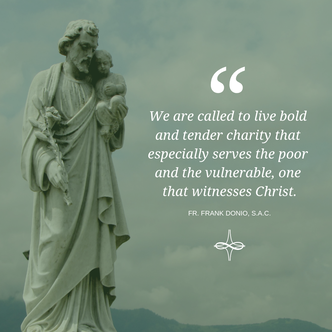 March 19th marks the Solemnity of St. Joseph, Spouse of the Blessed Virgin Mary and Patron of the Universal Church. These are rather lofty titles. He has many others. I first came to know St. Joseph, not only through the Nativity story, but because he was the patron of my parish church in Hammonton, New Jersey. As a child, I would look at the statue of St. Joseph to the right of the main altar and saw a wise looking, older person holding the child Jesus. His face was kind and tender, yet strong. Only later did I admire the work of the artist who was able to capture the essence of St. Joseph. Pope Francis, whose sixth anniversary of the inauguration of his ministry as pope is also on March 19th, reflected on these and other aspects of St. Joseph and what they mean for us: “In the Gospels, Saint Joseph appears as a strong and courageous man, a working man, yet in his heart we see great tenderness, which is not the virtue of the weak but rather a sign of strength of spirit and a capacity for concern, for compassion, for genuine openness to others, for love. We must not be afraid of goodness, of tenderness!” (Pope Francis, Homily, March 19, 2013) Charity or love, St. Thomas Aquinas tells us is “to will the good of the other.” (CCC, 1766). Goodness is not simply about being polite. It is much more than that. It is an opportunity to live love of neighbor in a way that is strong and bold at times. It is a way of showing love of God. Consider what St. Joseph did for Mary in taking her into his home (Mt. 1:24) or in moving the family to Egypt at a moment’s notice (Mt. 2:14). These were in response to God’s invitation to do so – an invitation that came in dreams. We are called to live bold and tender charity that especially serves the poor and the vulnerable, one that witnesses Christ. This is at the heart of the Lenten practice of almsgiving. It is this type of charity that “urges us on” as St. Paul tell us (2 Cor. 5:14). Pope Francis witnesses it, St. Vincent Pallotti lived it, and we are all called to do the same. May the Charity of Christ urge us on! “Remember you are dust and to dust you shall return.” We are now over a week into our Lenten journey; the reality has set in. We are questioning our decisions to give up sweets or the snooze button, and we are tired. Perhaps we have even failed a few times. The forty days seem to drag, and the somberness of the liturgical season has made itself known. Yet during the Ash Wednesday service at my parish, our priest was talking about the joy of the season and how our failures are meant to bring us closer to Our Lord. In a word, he talked about the hope of Lent. As someone who would rather stay in the joy and light of the Christmas season, I was really challenged by Father’s perspective, especially now, after my many failed attempts to give up the snooze button. We often focus so much on the “giving up” aspect of Lent that the words joy and hope do not seem to go hand in hand with this season. This is especially true when I think of the phrase that kickstarts our Lenten journey: “Remember you are dust and to dust you shall return.” On a superficial level, this sign on our forehead doesn’t look so good. Where are the hope and joy in having ashes smeared on your forehead? Throughout his homily, Father also encouraged us to change our perspective on the difficult acts of penance we are attempting and instead to live in the reality that this season could be a time of true conversion of heart. Our Lord desires us to be holy! The acts of penance we choose could be the very means He uses to break us of habitual sin and to bring a deeper level of charity into our hearts. Conversion of heart and holiness? I could get behind that; I can see the joy there! The priest did not say “if you fail your resolutions” but “when you fail.” This is a reminder of our weakness and utter dependence on Jesus, who will be making His way to Calvary soon, in Scripture, to save our souls. This dependence on Him will assist in our conversion of heart, considering “we can do nothing without him” (John 15:5). So: it’s alright to fail, but run back to Him. Beg Him for more grace! Now let’s read this sentence from the Ash Wednesday service one more time: “Remember you are dust and to dust you shall return.” Where is the hope there? Father explained that this is the most hopeful reality yet. Ultimately this reminder of our sinfulness and our death paradoxically represents the life we have in Christ, the Resurrection of Jesus, and the hope we have of entering into the Eternal Reward. Even though the phrase seems bleak, it can propel our hope throughout these 40 days. We have something to strive for, to live for, and to love for. Though I have failed at my Lenten resolutions more times than I have not, I pray with the hope that my humanity might be resurrected, that Our Lord may convert my sinful ways, and that I may remember that this liturgical season is less about what I do and more about what the Lord is doing in my heart to get me home. What are ways you need to be renewed in hope and joy? How can you accept the failures that come with penance and run to Jesus this Lenten season? “Remember you are dust and to dust you shall return.” For more resources to accompany you on your Lenten journey, please click here. “Peter and his companions had been overcome by sleep, but becoming fully awake, they saw his glory and the two men standing with him.” -Luke 9:32 Twice in the Gospels we hear of the trio of disciples sleeping at pivotal moments in Christ’s life and ministry: at the Transfiguration – in this Sunday’s Gospel – and in the Garden of Gethsemane during Christ’s Agony. Both times, Christ is in deep prayer. And both times, Peter, James, and John are “overcome by sleep.” I get it. The group of men have just hiked up a mountain. It would have been normal to rest after such a grueling endeavor. Similarly, in the Garden, Jesus took the three disciples to pray after the Feast of the Passover—a long, filling meal complete with wine. I think of all the times I’ve napped after a holiday meal and sympathize with Peter, James, and John. In these scenes, they are so human. They become tired and rest their eyes. And yet, because of their physical tiredness, they miss out on God’s glory. In this week’s Gospel for the Second Sunday of Lent, Jesus is transfigured and his three beloved disciples are offered a glimpse of the glory to come—not only the glory of the Resurrected Christ, but the glory that awaits all men and women who allow themselves to be transformed by his grace. This Lent, I find myself asking, “Am I asleep with his disciples? What’s causing me to shut my eyes to God’s glory?” These questions are what have guided my Lenten journey as I discern how to grow in holiness this season. Each year, the Church in her wisdom asks us to reflect on what is making us spiritually sluggish and helps us prepare for Easter through prayer, fasting, and almsgiving. By ramping up in these three Lenten tenets, we can grow in our ability to see God’s will and the Holy Spirit at work in our lives. Had the Apostles been awake throughout the entirety of Christ’s Transfiguration, they would have basked longer in this glory—fear and confusion would not have gripped them. Lent calls us to wake up, to be alert, not only for the Easter celebration, but for God’s invitation to greater holiness throughout our lives. Pope Francis highlights Lent as the continuation of the “journey of conversion.” This journey is a lifelong one. And yet, seasons such as Lent, which focus on an even greater attention to prayer, fasting, and almsgiving, often spur us deeper and further on this journey towards Christ. As Pope Francis encouraged in his 2019 Lenten message: Let us not allow this season of grace to pass in vain! Let us ask God to help us set out on a path of true conversion. Let us leave behind our selfishness and self-absorption, and turn to Jesus’ Pasch. Let us stand beside our brothers and sisters in need, sharing our spiritual and material goods with them. In this way, by concretely welcoming Christ’s victory over sin and death into our lives, we will also radiate its transforming power to all of creation. The goal of Lent is not only Easter, but Christ Himself. This Lent, may our participation in prayer, fasting, and almsgiving help us shake off the drowsiness that shuts our eyes to God’s glory. For more resources to accompany you throughout your Lenten journey, please click here. Questions for Reflection: Am you asleep with Christ's disciples? What’s causing you to shut your eyes to God’s glory?” “Jesus returned from the Jordan and was led by the Spirit into the desert for forty days, to be tempted by the devil...” - Luke 4:1-13
In each of the Church’s Liturgical Seasons we have an opportunity to examine ourselves and reflect on different aspects of Jesus’s life. During Lent we create a space to reflect on His suffering and sacrifices. In today’s Gospel reading the Spirit led Jesus into the desert. For forty days Jesus lived in the wilderness, and faced the devil’s temptations. He was tempted with pride, power, and popularity; however, Jesus knew that He was called to follow God’s will and resist the empty promises the devil offered. I find comfort that the Holy Spirit led Jesus into the trial. The forty days were meant to prepare Jesus for the work that was to come, and a part of that preparation included temptations. Jesus relied on His knowledge of the scriptures and combatted the temptations with Truth. Turning a stone into bread seems like an innocent action, but Jesus knew that the temporary satisfaction would be empty and in defiance of God’s will. Jesus understands what it means to face temptation, and in His resistance provides a model of following God’s will that we should all ascribe to. Jesus was tested, and responded without sin. When I find myself facing a trial, I can draw comfort in the knowledge that the same Holy Spirit that led Jesus into the wilderness is in me. In His resistance in the wilderness, we have a foretaste of Jesus’s victory to come. At Easter we celebrate Jesus’s victory over death; in the meantime Lent provides us with a time to fast and prepare our hearts for the inevitable temptations of the world. Lent provides us with the opportunity to spend forty days in our own “wilderness”, fortifying our own hearts through sacrifice and prayer. FOCUS: COMMUNITY Throughout Lent we focus on all that Jesus has done for us. In today's Gospel we see that Jesus resisted each temptation, not just for Himself, but for us. Each of the temptations the devil proposed were designed to distract Jesus from His humanity. Each temptation involved Jesus using His divinity for personal gain and separating Himself from the human community. The temptation of individualism is something that we are all called to resist. The Lord created us as social beings with a responsibility to care for one another. WHO INSPIRES YOU TO SERVE? My Mom has always been a model of service I aspire to follow. She embodies the principle of placing others first, stressing to me and my siblings that “where your treasure is your heart will also be.” Mom’s treasure is rooted in the love she has for our community, and it is important to her that she actively invests her time to show the love. It could be as simple as caring for our school garden, or as involved as organizing our Church’s homeless outreach ministry. Mom has always found a way to make time for the causes that matter to her, and in doing so has shown the importance of committing time and resources to love others in her care for all of God’s Creation. PRAYER: Lord, you created us to love and worship. Help me cling to the truth that I am Yours in the midst of trials. When I walk through the valleys help me remember the joys from the mountain tops, and place my hope in the knowledge that Your will is for my good. Stir in me a heart that longs to discern Your will. Help me to work Your justice rather than personal gain every day of my life. Bless our bodies for Your service, and our service for Your Glory. To view the entire 2019 Lenten Guide, please click here. For more Lenten resources, please click here. Mara Scarbrough, Bon Secours Volunteer Ministry The next forty days of Lent are Mother Church’s annual call to intense prayer, fasting, and almsgiving oriented towards embracing God as the center of one’s life and repenting of all which distracts us from Him. With the current crisis for the Church in the United States, it seems that the Church could really use a good spiritual renewal, cleansing, and renunciation of sin often focused on during the season of Lent. As parts of the Body of Christ[1], we are all too aware how an affliction experienced (or caused) by one part affects us all. Recall the words of St. Paul, “Rejoice with those who rejoice, weep with those who weep... Do not be conquered by evil but conquer evil with good.”[2] The Church is suffering but, just as she always has, she will ultimately be restored for the glory of God. As laity, you and I are key to addressing this scourge, along with the Church’s holy clergy and religious, and to affirming God’s presence in our lives not just in the Lenten season, but every day.
Though a time of repentance, Lent is not a time of despair or hopeless suffering; this season reminds us that God, although saddened by our repeated failings, never closes Himself off from offering mercy and love to the broken, the sinner, and the lost. Lent is not a diet, nor a fad of living without something trivial, nor even a temporary spiritual renewal; it must take root—free from the sin which prevents this—and be nourished over the coming weeks to strengthen us throughout the whole year. Above all, Lent prepares us for the celebration of Easter. Christ has died, Christ is risen, Christ will come again; the Church suffers, the Church is renewed, the Church shall be restored! The abuse scandal today may cause people to feel abandoned, angry, confused, and sad. “How can this be happening?” is certainly a question in our hearts and homes these days. It is important to remember that Jesus Christ, the same “yesterday, today, and forever,”[3] reigns over the Church. He is omnipotent, divinely good, and eternal; Let us take courage in the truth that our faith is ultimately in Jesus Christ. Because our Lord remains faithful to us[4] and ever close to His bride, the Church, He gives us the strength to recommit ourselves to renouncing the evil in our sight that threatens to drive us away from God and His Church. Lent is the perfect opportunity to facilitate spiritual renewal, not only for ourselves but also for the greater Church. Following the example of Jesus’ time in the desert before commencing His public ministry, the faithful are invited to reflect on the state of the Church, pray for strength, courage, justice, and healing, and even seek accountability in the governance of the Church. Personal penance can be made for our own failings, but reparation must also be made to address this scandal and to unify God’s people to prayerful and peaceful action in seeking God’s healing grace to move forward. Over the next 40 days, let us care for the Church by promoting healing among ourselves, supporting the afflicted and needy, addressing sin and divisions, and always proclaiming Christ to each other and the world. For more resources to accompany you throughout the Lenten season, please click here. [1] cf. Lumen Gentium, 33. [2] Romans 12:15, 21. [3] Hebrews 13:8. [4] cf. 2 Timothy 2:13. |
Details
Archives
July 2024
Categories
All
|
About |
Media |
© COPYRIGHT 2024 | ALL RIGHTS RESERVED

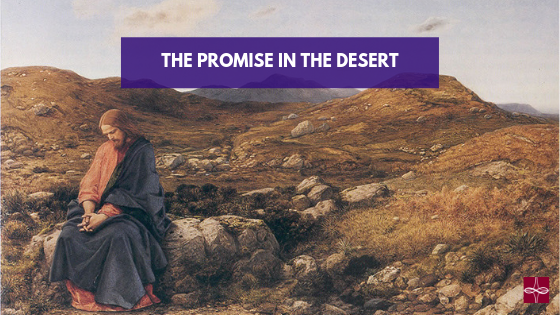



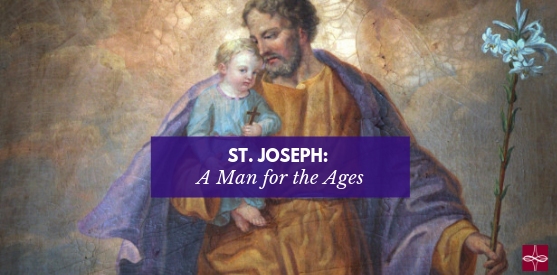

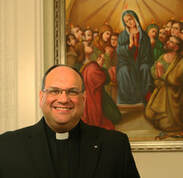
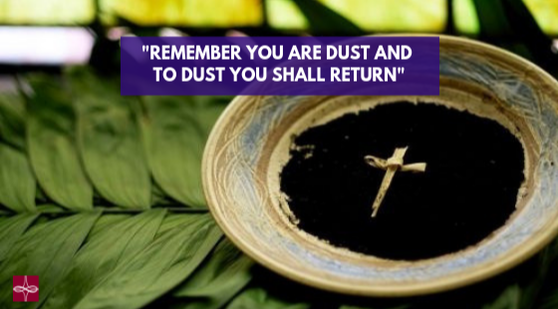

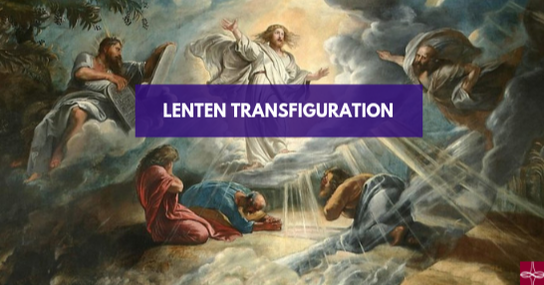

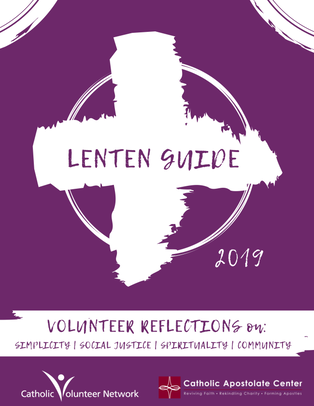
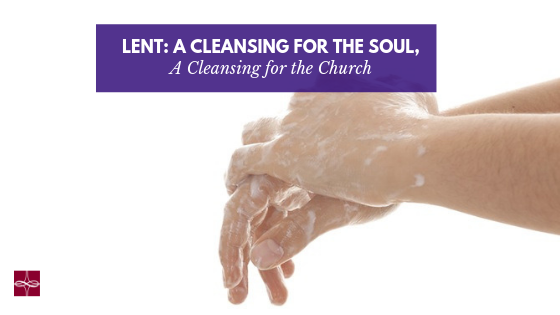

 RSS Feed
RSS Feed